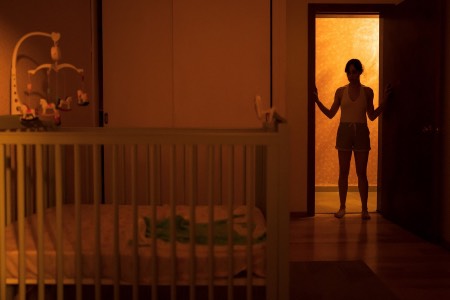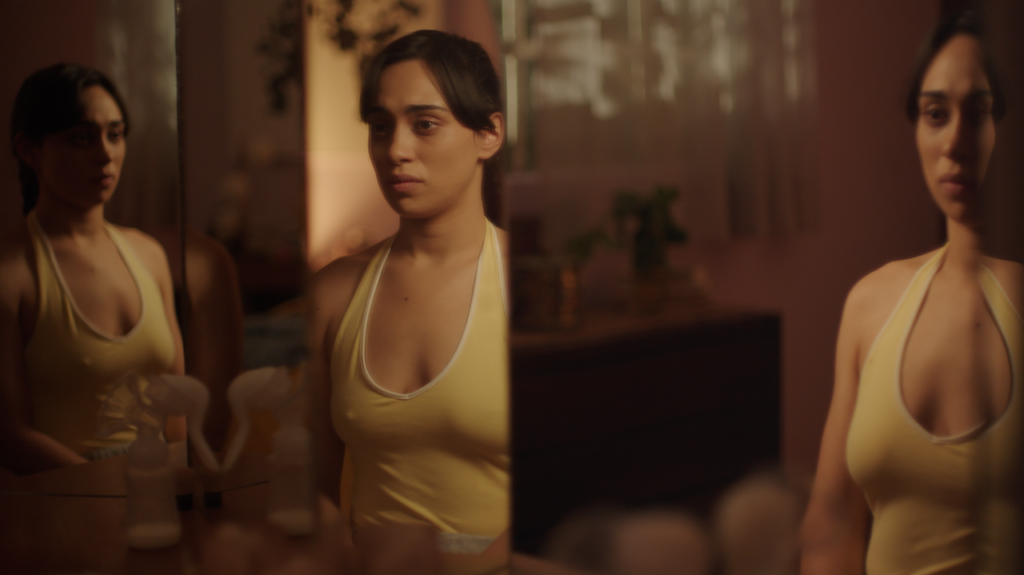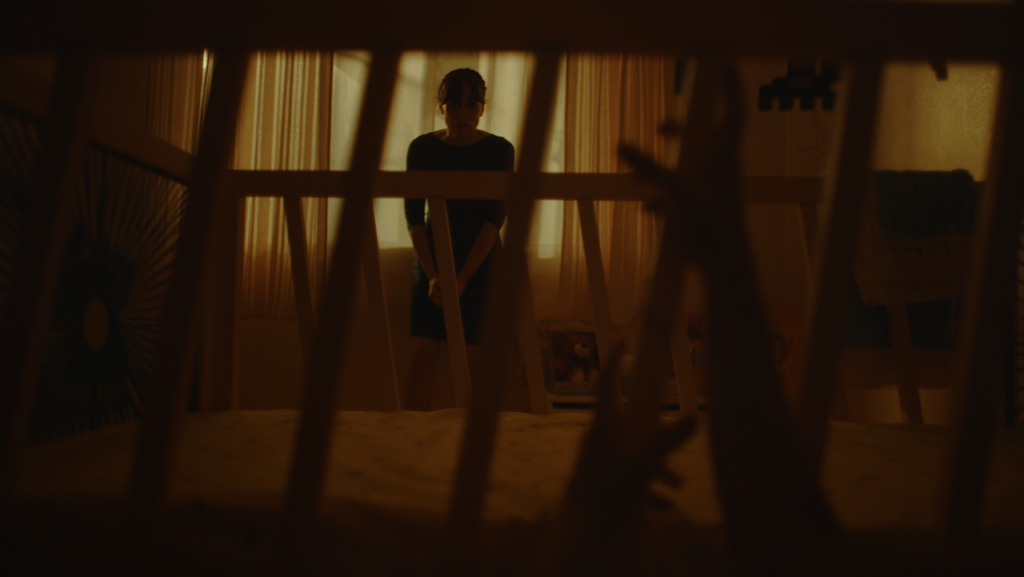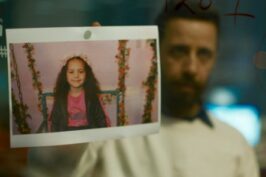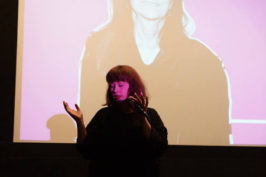The reality that at a certain point in life, a woman must decide to have children or not is not without its pressures. Pressures from family, from partners, from society and from oneself.
In Huesera: The Bone Woman, Michelle Garza Cervera‘s first foray into genre filmmaking, this very pressure takes the shape of a haunting figure. Natalia Solián (Netflix’s Somos) stars as Valeria, a young woman expecting her first child who becomes cursed by this sinister entity.
The film begins with Valeria and her mother going on a pilgrimage to pray to La Guadalupana, the Virgin of Guadalupe. The camera takes us along the road up to the top where it then pans out, showing the majestic size of the Virgin’s statue. The tone of the films is clearly set here; motherhood, like the Virgin Mother, is sacred.
At first glance, we think Valeria’s married life with Saul, Alfonso Dosal (Netflix’s Narcos: Mexico), is somewhat idyllic and well balanced. They live and work in Mexico City doing the things they love; they also both want to be parents. When Valeria announces her pregancy, Saul is ecstatic. Her mother-in-law starts to buy toys for the baby girl. Valeria’s parents and sister are happy but they also have an underhanded way of questioning her abilities as a mother. Family can be so loving and toxic at the same time.
One of her only supporters is her Tía Chabela, Mercedes Hernández (Identifying Features), the auntie who is the only one family member who truly sees Valeria. Her old friend Octavia, Mayra Batalla (Prayers for the Stolen), who has also made a reapperance in her life, also makes Valeria feel a bit safer. They are her only support system at this very trying time.
Valeria’s pregancy is not easy. From her first trimester she starts to feel more anxious due to voices and visions of ‘someone’ trying to taunt and torment her. Saul is not much help; dismissing her concerns. When things get worse, he even thinks Valeria should be hospitalized. Him and his mother decide for Valeria that she needs to take medication. In her way, Saul’s mother tries to Valeria explain pregnancy is not always easy but in the end it is totally rewarding and the most fulfilling experience.
Once the baby arrives, Valeria tries to be motherly. She clearly loves her daughter but she is exhausted and the haunting has not stopped. The ‘monster’ keeps tormenting Valeria to the extent the baby is no longer safe. Valeria reaches a boiling point; she knows she needs something like an exorcism in order to save her baby and herself. Thrown into a terrifying and periolous ‘other world’, a group of brujas (witches) become Valeria’s only hope for safety and salvation, but not without risk. The finale leaves one with so much to think about, which I believe works quite well. Some may differ in this opinion, but I for one, am a fan of leaving the audience in deep thought at the end of a film.
Directing from a script co-written with Abia Castillo, Garza Cervera carefully crafts a tale about motherhood, societal expectations and personal desires coming together to afflict Valeria. Together with Solián’s physically and emotionally powerful performance, Huesera: The Bone Woman becomes a warning tale of what happens to a woman when aims to appease everyone around her – in the process, forgetting who she is, what she wants, and what she desires.
Adding to the depth of the film is the ensemble cast, as well as the cinematography by Nur Rubio Sherwell and team. There are so many excellent visuals in the film which echo Valeria’s torment and struggles. We see her often framed around lines that mimic a prison or a web; adding to the effect of feeling trapped in one’s surroundings. There is also the use of vibrant colours and smart camera angles. Not to leave out the production design team led by Ana J. Bellido; the interiors in the film give it a unique visual and emotional tone as well.
There is no surprise as to why Huesera: The Bone Woman won both the Best New Narrative Director and Nora Ephron awards when it premiered at the 2022 Tribeca Film Festival in New York. It has gone on to win both the Blood Window Award for Best Feature Film and the Citizen Kane Award for Best Directorial Revelation at the internationally renowned Sitges Film Festival in Spain and the Feature Film Audience Award at the Morelia International Film Festival, Mexico’s premier film festival and one of the most important film events of the Latin-American subcontinent.
Although the film is very Mexican in its setting, cultural and religious perspectives, the story is still very universal. Decisions and feelings about motherhood are complex; not all women ‘feel’ that calling yet the societal pressures always creep in. Huesera: The Bone Woman is now part of the list of films crafting an insightful character study from a female perspective, in the guise of a psychological, body horror.

